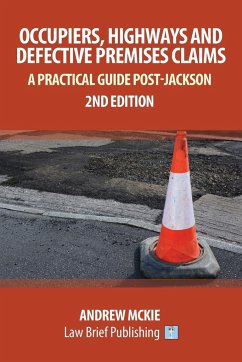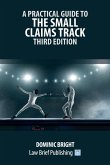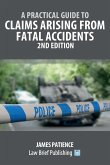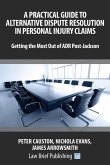A practical guide to running highways, occupiers and defective premises claims in an economical and efficient way, post-Jackson and in fixed costs. This book covers issues in relation to Occupiers Liability cases (1957 and 1984), Highways cases (1980), Defective Premises (1972) and nuisance, and in particular focuses on the day-to-day issues in practice that one encounters with such cases. Includes spotting the 'winners' and 'losers' quickly and efficiently, practical tips for investigation, litigation tactics, as well as a summary of the law, the important cases in relation to highways, occupiers, nuisance and defective premises claims, the public liability low value portals and how to run these claims efficiently in fixed recoverable costs. The book has been fully updated for 2018 to include:- Further fixed costs in PL/OL claims in April 2018. Likely changes to the PL/OL fixed costs regimes from the 2017 Jackson report. Costs recovery on OL/PL cases following Chapman v Tameside - An award of Fixed Costs where a claim was discontinued after late disclosure. Broadhurst v Tan - Award of costs beyond fixed recoverable costs. Sharpe v Leeds City Council - Fixed costs on PAD applications. Bird v Acorn - Disposal hearing - which costs apply? Obtaining exceptional costs - a guide in PL claims. An update on the leading case in Occupiers Liability claims. An update on the leading cases in Highways Act claims. An update on the leading cases in Defective Premises claims. Further tips for running cases post Jackson. ABOUT THE AUTHOR Andrew Mckie, Barrister at Clerksroom Manchester, is a specialist in claimant and defendant personal injury, with a particular interest in cases involving alleged fraud, credit hire, highways, occupiers and defective premises cases. He was previously Head of Litigation and In-House Solicitor Advocate at a claimant personal injury firm with over 50 staff.
Hinweis: Dieser Artikel kann nur an eine deutsche Lieferadresse ausgeliefert werden.
Hinweis: Dieser Artikel kann nur an eine deutsche Lieferadresse ausgeliefert werden.








